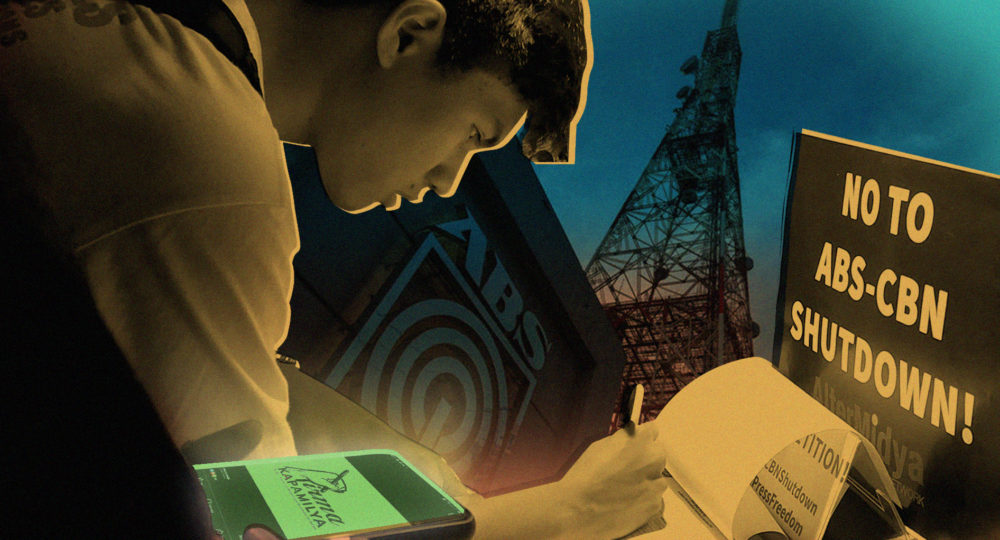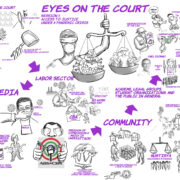ABS-CBN workers and Irene Khan
United Nations Special Rapporteur on freedom of expression and opinion Irene Khan met media groups on the first day of her official visit to the Philippines last January 23. Her staff made sure that employees of ABS-CBN would be among those she would meet.
Her invitation was enthusiastically accepted by the ABS-CBN Employees Union (ABSCBNEU). It meant that what they’ve undergone did not go unnoticed and have not been forgotten by the international community. Many things have happened since ABS-CBN—once the country’s biggest media network—has lost its terrestrial radio and television operations due to the denial of its franchise renewal bid by the Rodrigo Duterte regime in 2020.
ABSCBNEU president Jon Villanueva came prepared that Tuesday afternoon. Of the 20 or so colleagues from various non-government media organizations present in the meeting with Khan, he was the only one with a written copy of what he wanted to share.

He began with a loud enough voice, albeit shaky, obviously nervous. He said 4,000 direct workers had lost their jobs when ABS-CBN lost its franchise. He added that thousands from outsourced services like janitorial, security, fleet, clinic, technical utility, building maintenance, clinic and others also lost theirs. Villanueva said that ABS-CBN’s closure also affected the livelihood of many more, such as suppliers, adjacent restaurants, tricycle and pedicab drivers around its main headquarters in Quezon City. He said the same was probably true in the network’s 20 broadcast centers nationwide.
All eyes and ears were on the union head at this point, the gravity of his words weighing down on everyone in the room. Their experience was the biggest press freedom issue in the Philippines in the past three and a half decades after all.
Villanueva went on narrating how those who lost their jobs immediately experienced deterioration of their living standards. He said their children were transferred from private to public schools. Several had to let go of apartments or condominium units they started to pay for or have to move out of their rented houses to humbler abodes.
“Most painful of all, there were cases of employee deaths due to heart attacks after learning that they were included in the massive lay-offs…” Villanueva said before suddenly stopping as he started sobbing.
The room fell even more silent.
A fellow unionist continued reading for Villanueva who was unable to continue. He said there were a few who were able to immediately find alternative employment while the rest who were initially retained were forced to take pay cuts. They were also forced to take up the slack left behind by the bloodbath.
But many more workers would still lose their jobs years after. In 2023, around 70 workers of ABS-CBN’s online Teleradyo programs were let go. ABS-CBN’s News Channel (ANC) as a program of its Sky Cable subsidiary would also possibly close once its sale to PLDT is finalized. ANC is a rival to PLDT’s own OneNews by TV5.
The union said ABS-CBN’s closure considerably impacted the people’s access to timely information and reliable news. This is felt most during calamities and natural disasters, especially in rural areas that relied on ABS-CBN’s news coverage. The company also provided medical and relief assistance to disaster-hit areas, a long-running program it was forced to discontinue.
“Millions of Filipinos have lost a pillar in Philippine news and mass media. The attack on ABS-CBN is not just a question of freedom of expression, it was a clear attack on workers, as well as our country’s democratic space and culture,” it ended. #
(Coincidentally, another news outfit is closing down today. It is CNN-Philippines’ last broadcast day. But that is a story for Irene Khan and the Filipino people to hear some other day.)







